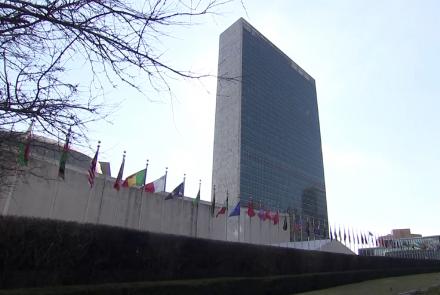The United Nations in a statement on Friday said that a top delegation from the organization in its four-day trip to Afghanistan called on the Islamic Emirate “to end confinement, deprivation, and abuse of women’s rights in Afghanistan.”
In meetings with authorities in Kabul and Kandahar, “the delegation directly conveyed the alarm over the recent decree banning women from working for national and international non-governmental organizations a move that undermines the work of numerous organizations helping millions of vulnerable Afghans,” the statement said.
“What is happening in Afghanistan is a grave women’s rights crisis and a wakeup call for the international community,” the head of the UN Women, Sima Bahous, said.
“It shows how quickly decades of progress on women´s rights can be reversed in a matter of days,” she added.
The UN official stressed that the organization stands with all Afghan women and girls and will continue to amplify their voices to regain all their rights.
The delegation included UN deputy chief Amina Mohammed, the Executive Director of UN Women Sima Bahous, and the Assistant Secretary-General for UN political, peace-building and peace operations, Khaled Khiari.
The visit was aimed at doing a fact-finding mission in Afghanistan, engaging with Islamic Emirate leaders, and “underscoring UN solidarity with the Afghan people,” the statement said.
But Bilal Karimi, the deputy spokesman of the Islamic Emirate, said the current government will address all these issues based on Islamic law.
“The international community, countries and involved parties should also respect the principles, traditions and spirituality of our country,” Karimi said.
Meanwhile, EU envoys in a meeting in Brussels on Friday discussed the humanitarian crisis, the ban on work and women’s education in Afghanistan.
“Afghanistan remains high on the EU agenda,” Terhi Hakala, EU Special Representative for Central Asia said in a tweet.
“EU-Central Asia Special Reps. and Envoys meeting today in Brussels to look into possibilities to move the situation into positive direction concerning dire humanitarian crisis, ban on women and girl education, human rights situation,” she added.
Moreover, former US special envoy for Afghanistan’s reconciliation, Zalmay Khalilzad, asked the Islamic Emirate leaders to listen to Mawlawi Abdul Hamid, a religious scholar from Iran.
“Those Taliban leaders who banned girls and women from high schools and universities should listen to Mawlavi Abdul Hamid. In his sermon today (Friday), he says men and women have equal rights to education, and no government or leader can deny them this,” Khalilzad tweeted.
“Governments should pay attention to women. There is no difference between the education of women and men. As it is necessary for men the same way it is necessary for women,” Mawlawi Abdul Hamid said.
“Each country is built according to its philosophy and religion, and without no doubt, women are an essential and indispensable portion of society,” Mohammad Khalid Musleh, a political analyst said.
Several weeks have passed since the ministries of Higher Education and Economy suspended female employees from working in NGOs and women from attending universities.











